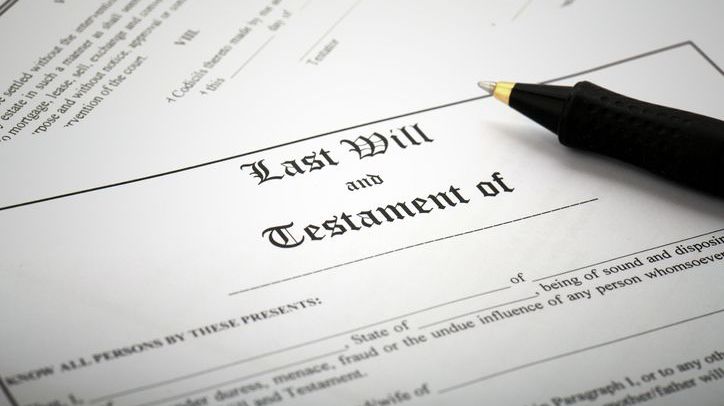The creation of a last will and testament is an important undertaking that honors your legacy and protects your loved ones. The process of creating a will in the state of Texas is relatively straight forward, but there are specific rules and requirements you’ll need to adhere to in order to guarantee that your will is legal and valid.
A financial advisor with estate planning experience can be a valuable resource as you make a plan for your assets and loved ones, whether you live in Texas or elsewhere.
Texas Will Requirements
Creating a valid will is a critical step in ensuring that your final wishes are honored in Texas. However, there are specific stipulations set forth by Texas law for drafting a valid will. In order to execute a will in the state, you’ll need to keep these requirements in mind:
- Minimum age: In Texas, individuals must be at least 18 years old, or legally emancipated through marriage or military service, to create a will.
- Mental competency: An individual must be of sound mind to draft a will, which means understanding the nature and extent of their property, knowing the logical heirs to their estate and having the ability to make informed decisions about asset distribution.
- In writing: The will must be documented in writing, whether typed or handwritten. Handwritten wills, or “holographic wills,” are valid if entirely in the testator’s handwriting and signed.
- Voluntary creation: The will must be voluntarily created, free from coercion or undue influence. Any form of pressure or manipulation that compromises the testator’s desires can invalidate a will.
- Witnesses: To execute what’s known as a formal will in Texas, you’ll need to sign the document in the presence of two competent witnesses who are at least 14 years old and have no stake in the will. This helps to prevent conflicts of interest.
Steps for Creating a Will in Texas

In Texas, the consequences of not having a will can result in intestate succession, a process where the state’s laws determine asset distribution, in ways that might not align with the decedent’s desires.
The creation of a will is a structured process, each step of which is pivotal in forming a binding legal document. It’s important to remember that this guide is specifically tailored to Texas and individuals in other jurisdictions should seek information relevant to their local regulations.
1. Decide What Kind of a Will You’ll Have
In Texas, you have the choice between a formal will (requiring witnesses) and a holographic will (a handwritten document by the testator without the need for witnesses). The decision often depends on the complexity of your estate and personal preferences. For instance, someone with a straightforward estate might opt for a holographic will for its simplicity, while another with a more complex range of assets might choose a formal will for the added legal robustness it offers.
The Texas Supreme Court provides official will forms, which are useful starting points. For instance, the state has a form for people who are single, widowed or divorced but also have children, as well as a form for people who are married with no children. It’s advisable to consult a legal professional to ensure your will fully captures your intentions and legal requirements. These forms can be found on the Texas Supreme Court’s website, which provides a direct and user-friendly way to access and utilize them for drafting your will.
2. Choose an Executor
An executor plays a crucial role in managing your estate according to your will. Their responsibilities can be complex and sometimes challenging, such as settling disputes among beneficiaries or navigating the probate process. It’s essential to choose someone who is capable and willing to take on these tasks. Before making your decision, have a conversation with your potential executors to ensure they understand and are prepared for their responsibilities.
3. Decide Who Will Inherit Your Property
Carefully consider who will inherit your property, providing explicit instructions to avoid ambiguity and ensure your wishes are carried out. Keep in mind that Texas is a community property state, which means that assets acquired during marriage are owned jointly by spouses. This legal framework affects how these assets are distributed upon death, since jointly-owned property will simply transfer to the surviving spouse.
4. Assign a Guardian to Care for Any Minor Children
If you have minor children, you can use your will to appoint a guardian to care for them. Discuss this decision with the potential guardians to confirm their willingness and ability to take on the role, thus ensuring the best interests of the children are safeguarded.
5. Sign Your Will in Front of Two Witnesses
If you’re creating a formal will in Texas, you’ll need to sign the document in front of two witnesses. The witnesses must be legally capable of understanding the document they are signing, which in Texas means they should be at least 14 years old and of sound mind.
6. Safeguard Your Will
After signing, store your will in a secure location, such as a safe or with a trusted attorney, and consider modern options like secure online storage services. Be aware of the risks associated with each method. For example, safes might be inaccessible in emergencies. Informing your executor and close family of the storage location ensures the will can be found when needed.
7. Review and Update Your Will
Life changes, such as marriage or the birth of a child, require a will review. For example, marriage in Texas can revoke a previous will, and divorce might alter how property is bequeathed to a former spouse. Use life events as reminders to update your will accordingly.
Does a Will Have to Be Notarized in Texas?
Notarization is not a prerequisite for a will to be considered valid under Texas law, but it can make the will “self-proving” and expedite the probate process.
Probate is the legal procedure used to settle the estate of a deceased person, and a will that is self-proving is one that can be admitted to this process without the need for witness testimony, which can otherwise be a time-consuming step.
Making your will self-proving is a simple process that involves signing an affidavit in the presence of a notary public, following the formal creation of your will.
Understanding Probate in Texas

As mentioned above, probate is the legal process that leads to the resolution of a person’s estate. It’s carried out under the auspices of a court, and in Texas, it may involve the:
- Validation of a will
- Appointment of an executor or administrator
- Identification and notification of creditors and beneficiaries
- Valuing the estate’s assets
- Settling debts and taxes
- Distributing the remaining assets to rightful heirs or legatees
Independent Administration vs. Dependent Administration
In Texas, an estate can be settled either through independent or dependent administration.
Independent administration of estates offers an alternative to the traditional probate process, providing a more expedited and less supervised means of settling an estate. It is a testament to Texas law’s flexibility, allowing for an executor or administrator to perform their duties with a significant degree of autonomy, thus streamlining the process and reducing associated costs.
This form of administration is permissible when the decedent has explicitly expressed this wish in their will, or, in the absence of such a provision, when all beneficiaries consent to it.
Dependent administration, on the other hand, requires comprehensive court oversight. This approach is needed in situations where the estate in question is fraught with complexities such as disputes over the will, the absence of a will or disagreements among potential heirs. In these cases, the court’s more stringent supervision ensures that the administrator’s actions are closely monitored and that approval is sought for all significant decisions.
Tips for Avoiding Probate in Texas
Avoiding probate in Texas can help your loved ones save time, money and unnecessary stress after your passing. With some thoughtful planning and the right legal tools, you can ensure your assets transfer smoothly to your beneficiaries without lengthy court involvement. Here are several key strategies to consider.
- Use Beneficiary Designations and Payable-on-Death Accounts: Many financial assets, like retirement accounts, life insurance policies and bank accounts, allow you to name beneficiaries directly. Upon your death, these assets transfer automatically to the listed individuals without going through probate.
- Create a Revocable Living Trust: A revocable living trust lets you transfer ownership of your assets into the trust while you’re alive and control how they’re managed. When you pass away, the trust distributes assets directly to beneficiaries, bypassing probate entirely. Although establishing a trust involves some upfront effort, it can greatly reduce legal costs and delays later.
- Take Advantage of Simplified Probate Options: Texas law offers small estate affidavits for estates below a certain value, allowing heirs to transfer assets without full probate. This can make the process faster and less expensive for families with modest estates. However, it’s still important to organize titles, beneficiary forms and documentation ahead of time to ensure eligibility.
- Keep Property Titles and Deeds Current: Real estate in Texas can avoid probate with a transfer-on-death deed, which names a beneficiary who automatically inherits the property. Joint ownership with right of survivorship offers similar benefits, as the surviving owner immediately assumes full ownership. Regularly reviewing and updating your property records is essential to keeping your estate plan effective.
- Consult an Estate Planning Professional: Because Texas has specific probate and property laws, consulting an experienced attorney or financial advisor is highly recommended. A professional can ensure that your documents are legally sound and tailored to your goals. They can also help you coordinate multiple strategies for the most efficient transfer of assets.
Planning ahead to minimize or avoid probate ensures that your estate passes smoothly and according to your wishes. By taking advantage of Texas’s legal tools and working with experienced professionals, you can make the process easier for your heirs and protect more of what you’ve built over your lifetime.
Bottom Line
Whether you want your estate to go through the full probate process or not, you’ll likely want to draft a will to ensure your property is distributed to your heirs and any minor children have a guardian in the event of your death. In Texas, you must be at least 18 years old and of sound mind to execute a will. Your will also must be written out in order to be valid. However, the process for creating a will is relatively simple. The Texas Supreme Court even has approved of different forms to help you craft your will based on whether you’re married and/or have children.
Estate Planning Tips
- A financial advisor with estate planning expertise can help you decide how to transfer your property and assets to your loved ones when you’re gone. Finding a financial advisor doesn’t have to be hard. SmartAsset’s free tool matches you with vetted financial advisors who serve your area, and you can have a free introductory call with your advisor matches to decide which one you feel is right for you. If you’re ready to find an advisor who can help you achieve your financial goals, get started now.
- When planning your estate, you may want to consider creating a living trust to hold your assets while you’re still alive. When you die, the trust becomes irrevocable and bypasses probate. However, it’s important to weigh the benefits of a trust vs. a will as you make decisions around your estate plan.
Photo credit: ©iStock.com/Дмитрий Ларичев, ©iStock.com/roberthyrons, ©iStock.com/jeffbergen
